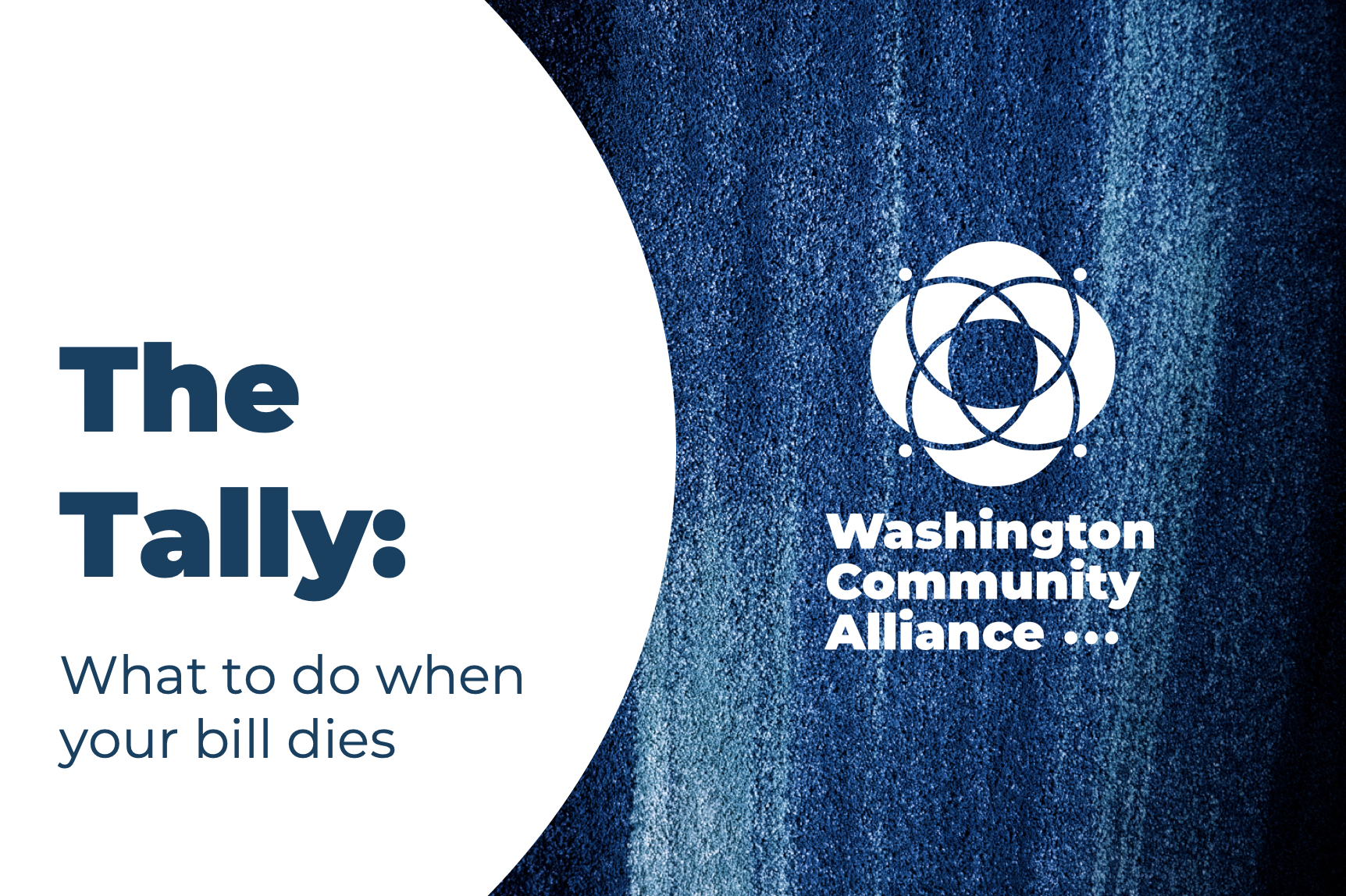
Getting legislation passed is a long game. And usually, it takes more than one session.
It’s exceedingly rare—like catching a golden snitch in your first-ever quidditch match rare—to get a bill passed the first year it’s introduced. Two of our big five died this week: Local Options to Strengthen Democracy (HB 1156) and Community Oversight for Police Accountability (HB 1204), the latter of which was a first-time bill. But just because they’re dead doesn’t mean it’s over. There are four key ways to revive a dead bill–if not this session, then the next:
1. Lobby the Speaker of the House
It’s unlikely–but not impossible– for the Speaker of the House (in this case, Laurie Jinkins) to revive dead bills, like a phoenix from its ashes! She does this by declaring it NTIB (necessary to implement the budget), and may be persuaded if there’s enough pressure from the public and, critically, her caucus. (Pro tip: NITB can spook legislators who are sticklers for proper process. If you try to push the Speaker to declare a bill NTIB, you’ll want to avoid signaling it to potential opposition. If you can get a meeting with the Speaker, be clear about your demand to use NITB, but when communicating publicly, it’s best to be broad in your demand, e.g. “find a way to revive X or Y policy”.)
2. Cozy up with another bill:
Odds are, there are other, related bills this session, that are trying to accomplish similar goals. Try to work with the sponsor of a similar bill to revise it by inserting the language of your bill that died.
3. Go back to community:
Use the interim to build support, resolve controversy or confusion, allowing you to come back with a tighter strategy and greater momentum. Examples of recent laws that applied this approach include a sweeping, historic Access to Democracy Bills and the Washington DREAM Act.
4. Bottom-up local approach:
Get versions of your bill passed at the local level. Implementation these solutions at a smaller scale will allow you to come back with proof of concept that legislators can’t deny. This was the approach taken with the state ban on Conversion Therapy for minors, which was first passed in Seattle and considered in King and Snohomish Counties before the Senate felt the pressure to pass. Our local options bill is in a similar process.
What do you think? Have any questions? Tweet us your thoughts @wacommalliance. Keep up with the action and opportunities to get involved with our legislative newsletter The Tally.

